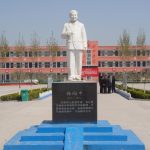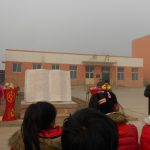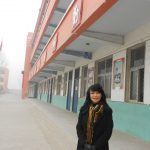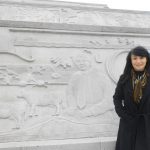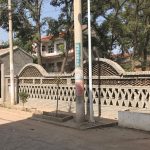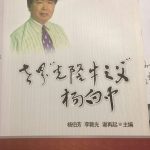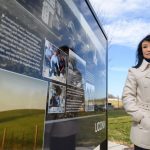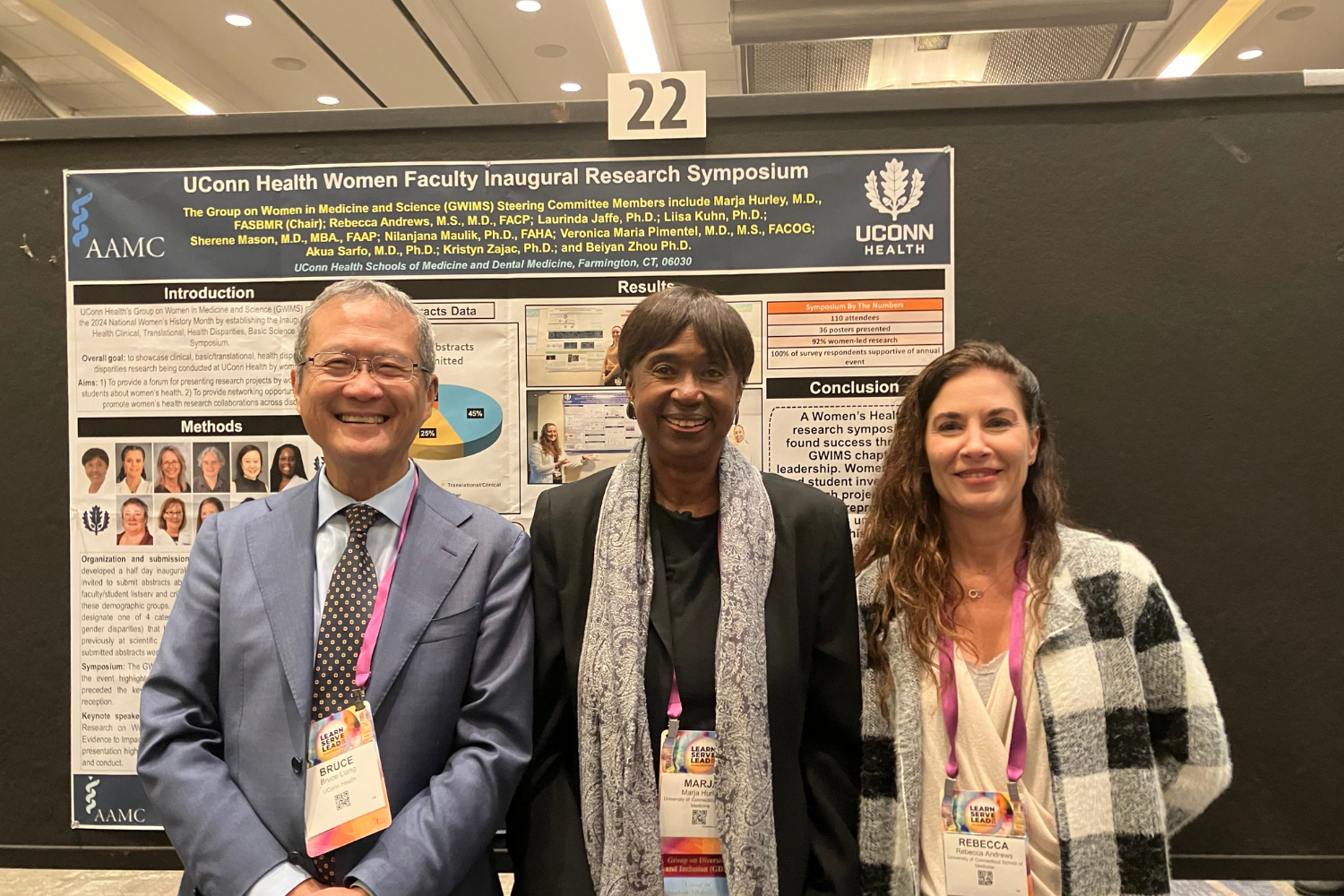It’s been more than eight years since the UConn community lost animal science professor Jerry Yang a few months shy of his 50th birthday, after a 10-year battle with cancer. But the Board of Trustees recently took a step to ensure that he will never be forgotten here on the Storrs campus.

Yang, whose full first name was Xiangzhong, was internationally known for his research in embryo transfer and biotechnology. He is best remembered for cloning Amy, a Holstein calf born at UConn in June 1999, the first cloned farm animal in the United States.
The Board has approved the naming of the street that leads to the UConn Dairy Bar from Route 195 as Jerry Yang Road. That same road is the location of the Agricultural Biotechnology Laboratory, where Yang performed countless hours of research that brought international fame to the University.
The resolution to name the road was brought to the Trustees by Cameron Faustman, interim dean of the College of Agriculture, Health, and Natural Resources.
“We have lots of awards and newspaper clips about Jerry at home, but this will last forever and is very visible,” says Yang’s widow, Xiuchun ‘Cindy’ Tian, a professor of biotechnology at UConn in the Department of Animal Science and the Stem Cell Institute.
Tian’s second-floor office in the Agricultural Biotechnology Laboratory overlooks the newly marked Jerry Yang Road.
“So many children come to the Dairy Bar, and now they can ask ‘Who was Jerry Yang’,” says Tian. “Jerry would love that, because he encouraged young people to learn about the sciences and STEM, and for them to set big goals in their lives.”
Yang was born and raised on a farm in the Chinese village of Dongcun, about 300 miles south of Beijing, and was subject to famine and constant hunger as a young boy. He came to the United States in 1983 on a national fellowship and earned his master’s and doctoral degrees from Cornell.
Tian met Yang in China, and she also received the same type of fellowship to study in the United States.
“China was just opening up at that time,” says Tian. “Jerry and I met when a group of older students were meeting with us about scholarship opportunities from the Ministry of Agriculture to study outside the country.”
She says Yang’s legacy as a successful scientist simply does not fully encapsulate who he was: “Jerry was a humanitarian, a visionary, and a social activist.”
During his time at UConn, he was very active working with the Chinese government in providing access to dairy products to the general population. Previously, dairy was only in the diets of the young and sick in China, and farmers did not have the proper resources. Through his writings to Chinese premier Wen Jiabao, farmers were able to receive high quality embryos and subsidies to improve the quality of dairy products in the country.
Family was extremely important to Yang, and his parents came to live with him and Tian for 12 years while he was at UConn.
“In China, a man is expected to take care of his parents, and Jerry always remembered that,” says Tian.
He had four siblings, three brothers and a sister, who have all earned advanced degrees. His brother Eric earned a doctorate from Michigan State.
Yang and Tian’s son Andrew is now 29 years old, lives in Manchester, and works in robotics and computers after earning his undergraduate degree from Ithaca College. He is currently taking graduate classes at UConn.
Yang enjoyed life, was a fan of late-night card games, and had a soft spot for Jonathan’s Supreme at the Dairy Bar – a mixture of vanilla ice cream, peanut butter swirl, and chocolate covered peanuts – which is a favorite of Tian’s as well.
Yang faced some challenges during his time at UConn. In 1999, just two years after arriving at the school, he was diagnosed with cancer of the salivary gland.
“It was a shock at the beginning, but he dealt with his illness with so much courage,” says Tian. “He wanted to live life to the full, and was always thinking about his next project. Jerry achieved so much, even after his diagnosis.”
Despite having difficulty eating and swallowing, he did not stop pursuing his research and sharing it with others. He eventually died from the disease on Feb. 5, 2009.
Yang is revered in his hometown in Hebei Province, China. His likeness and that of his cloned cow have been carved into a stone wall in a park; a statue of him has been placed in an elementary school; and his childhood home is being renovated into a museum.

